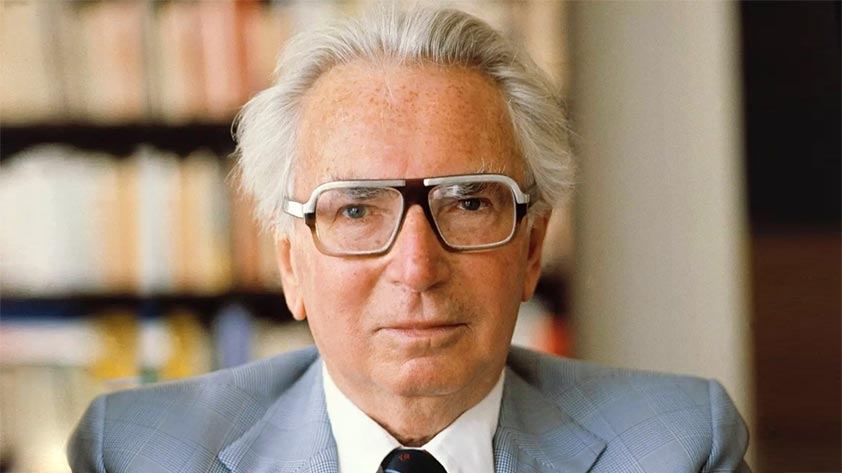
Title: Man’s Search for Meaning: The Classic Tribute to Hope from the Holocaust
Author: Viktor E. Frankl
Year: 1946 (Vienna, Austria) 1959 (United States)
Publisher: Beacon Press
“When a person can’t find a deep sense of meaning they distract themselves with pleasure.” -Viktor Frankl
I met Viktor Frankl through his book ¨Man’s Search for Meaning¨, and ever since, I’ve been recommending this book to everyone I know. His way of seeing life and the ability to find the light even in the darkest, vilest places on earth is what made me fall in love with his work.
In this review, I will share more about his life and the three main lessons I took from his book.
Who Was Viktor Frankl?
Viktor was born March 26th, 1905 in Vienna and became recognized for his characteristic way of thinking, gaining renown as the creator of “logotherapy”.
While studying at the University of Vienna, Austria, he showed interest in psychology and philosophy, one of his main interests was to understand depression and suicide and how to prevent it in the young population.
Frankl went through several different concentration camps, where he saw the full extent of human nature and their innate ability to survive in even the worst of circumstances. Like Maslow and Rogers, Frankl thought that Freud was looking at the person condescendingly, when he should have been looking more at their strengths.
Logotherapy is based on the future, planning goals and aims, contrary to psychoanalysis and its focus on the past.
His theory, Suffering and Meaning, is based on existential psychology. The aim is to search for meaning and accept that our suffering has a reason and a lesson.
He considered that the human experience has three dimensions: physical, mental and spiritual, and that the origin of psychological alterations are due to a lack of strength in the spiritual dimension. In other words, the meaning we give to suffering.
This basic approach was opposed to the behaviourism of the time and was ahead of the cognitive approach.
Some of his logotherapy techniques utilise:
- Socratic dialogue
- Reflection
- Confrontation
- Paradoxical intention
All these techniques are based on the patient listening and thus resolving his own contradictions and thus being able to move forward in his life.
The Top 3 Lessons I Took from the Book
1. Find Meaning in Your Pain
Frankl mentioned that while suffering, we have the opportunity to make a testimony of the human potential at its best, and to turn tragedy into triumph. In other words, to show what we’re made of, how capable and strong we are, and that even if we only have a one percent chance to win, we should take it.
This is an amazing lesson, we all have obstacles in our lives, but a question we should ask here is: is your “why” bigger than your “how”?
2. When We Cannot Change the Situation, We Must Change Ourselves
I can relate this lesson, “do not be the victim” . We cannot control what is outside of us, but we can control how we face it, and we can learn new tools and skills to fight, alchemize or transcend the evil of the world.
Another way to see this is via what Jordan B. Peterson says when people ask him about love issues and how to find someone. Jordan says that instead of looking for specific qualities in other people, you should first develop those qualities in yourself.
Do you want someone smart? Someone who can do this or that, do girls or boys keep avoiding you? Well, maybe you should learn those more magnetic qualities. Maybe you should focus more on yourself, feel happy with who you are first, and once you are happy and “complete” then someone might appear.
3. The Most Beautiful Poetry Can Be Found in Concentration Camps
With this statement what I mean is don’t run away from your emotions, they are trying to teach you something, face them, face the tears and your fears and grow as a human being and reach your maximum potential.
Paint like Van Gogh during his nights in the hospital, write like Bukowski, alone in a cramped, seedy hotel room, live like Frankl when he was free from hell.
I encourage you to learn more about the work of Viktor Frankl and his inspirational insights and to start searching for meaning in your life, today! Have you read Man’s Search for Meaning, what did you learn from it? Let us know in the comments below and on Facebook, Twitter & Instagram!









